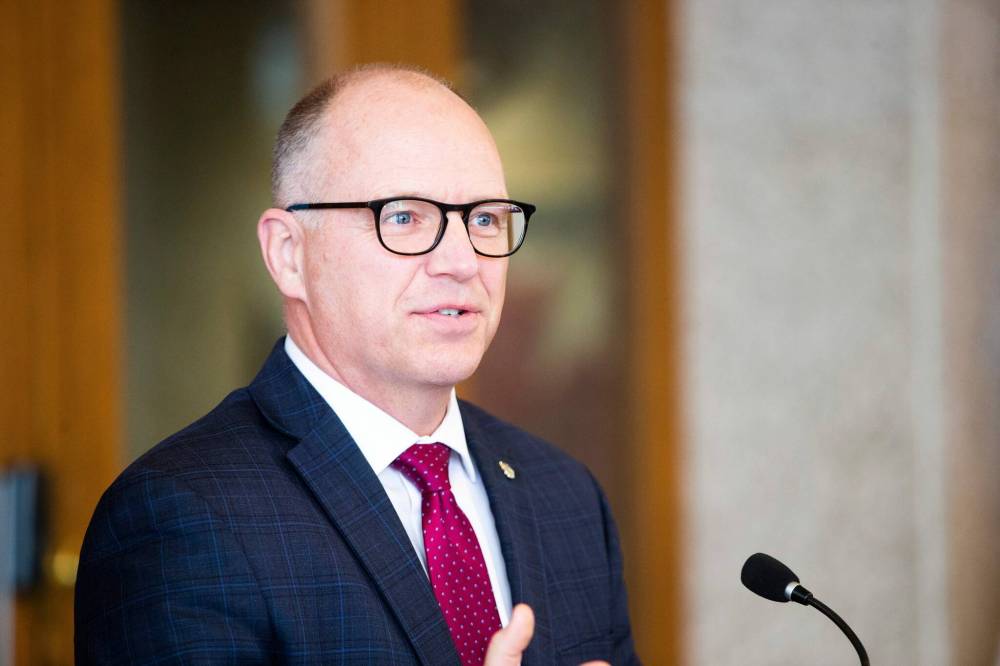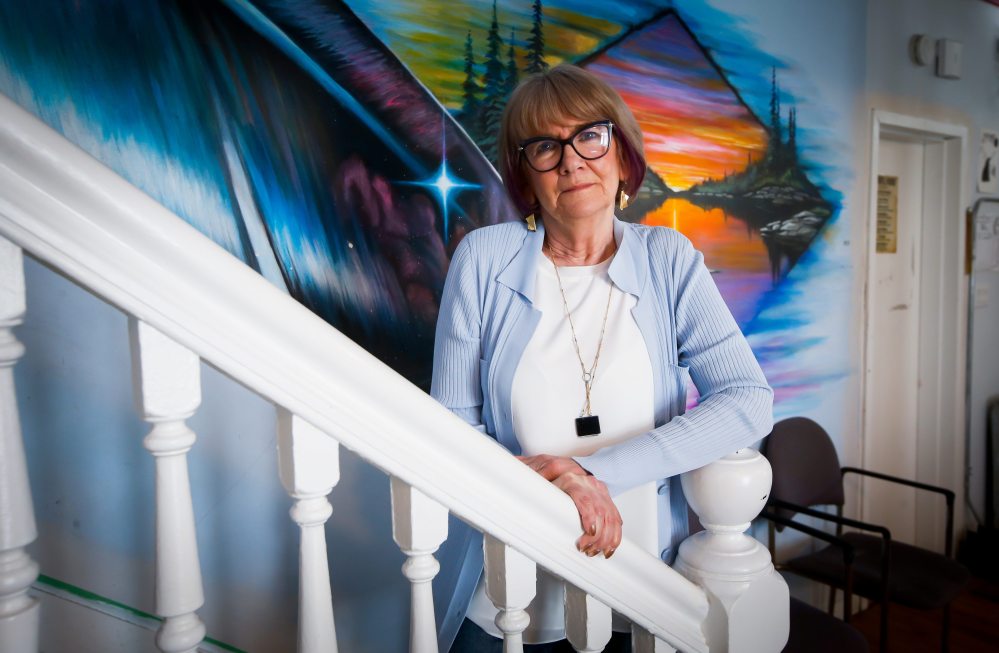Council to consider directing $1M to 24-7 shelters
Advertisement
Read this article for free:
or
Already have an account? Log in here »
To continue reading, please subscribe:
Monthly Digital Subscription
$0 for the first 4 weeks*
- Enjoy unlimited reading on winnipegfreepress.com
- Read the E-Edition, our digital replica newspaper
- Access News Break, our award-winning app
- Play interactive puzzles
*No charge for 4 weeks then price increases to the regular rate of $19.00 plus GST every four weeks. Offer available to new and qualified returning subscribers only. Cancel any time.
Monthly Digital Subscription
$4.75/week*
- Enjoy unlimited reading on winnipegfreepress.com
- Read the E-Edition, our digital replica newspaper
- Access News Break, our award-winning app
- Play interactive puzzles
*Billed as $19 plus GST every four weeks. Cancel any time.
To continue reading, please subscribe:
Add Free Press access to your Brandon Sun subscription for only an additional
$1 for the first 4 weeks*
*Your next subscription payment will increase by $1.00 and you will be charged $16.99 plus GST for four weeks. After four weeks, your payment will increase to $23.99 plus GST every four weeks.
Read unlimited articles for free today:
or
Already have an account? Log in here »
Hey there, time traveller!
This article was published 30/05/2023 (923 days ago), so information in it may no longer be current.
City council could soon devote $1 million to create new 24-hour, seven days a week safe spaces for vulnerable people and fund projects that help unhoused Winnipeggers move out of bus shelters to better accommodations.
On Tuesday, Coun. John Orlikow introduced a motion, seconded by Mayor Scott Gillingham, that aims to “form a ring of alternative shelter sites around downtown.”
“The need’s quite clear… There’s a lot of people struggling out there right now in Winnipeg,” said Orlikow.

During his fall election campaign, Gillingham promised to ramp up support for safe spaces and create an extreme weather policy, which he said the new motion aims to fulfill.
“The investment in these 24-7 safe spaces provides safe places for people to go around the clock,” said Gillingham, noting shelters tend to assist people overnight.
If council approves, the city will spend $1 million — which was approved in the 2023 budget — to expand the spaces as follows:
— Add $100,000 to the city grant for Ka Ni Kanichihk’s Velma’s House to expand 24-hour safe space support for at-risk Indigenous women;
— Provide $175,000 more to West End 24-Hour Safe Space (run by the Spence Neighbourhood Association) to add slots for youth;
— Offer $275,000 to N’Dinawemak to add North End 24-hour safe spaces, either at the 190 Disraeli Fwy. site or another location;
— Offer $250,000 to St. Boniface Street Links to provide 24-hour safe spaces east of the Red River, and negotiate a conditional, no-cost lease of city property for the spaces;
— Provide up to $200,000 for pilot projects that help unhoused people move from Winnipeg Transit bus shelters to 24-hour safe spaces and improve data collection on homelessness.
“It’s difficult to ask someone to come out of a Transit shelter if there’s no place for them to go. We want to make sure that Transit shelters are fully available for Transit users again… (and) we want to make sure that people have the resources and the protection that they need. (If) someone is trying to keep warm in a bus shelter overnight, that’s not a safe space for them, that’s not a warm place for them,” said Gillingham.
The mayor said he’d like to invest $1 million per year to continue the plan beyond 2023, if council approves. The motion notes a fourth 24-hour, seven days a week safe space could be created in 2024 to serve the South Downtown/Osborne Village area, after the Transit pilot partnerships end.
“Unfortunately, the need is so great that these sites are now necessary,” said Gillingham.
Two agencies selected to help deliver the services welcomed the announcement.
“Homelessness is city-wide, the crisis doesn’t end on the west banks of the Red (River). I think it’s time that we all realize centralized services no longer work in this city… We desperately need a space (for this) and it’s long overdue,” said Marion Willis, founder and executive director of St. Boniface Street Links.

Willis said there are about 16 encampments in the St. Boniface area, despite the fact two were dismantled Tuesday, with residents relocated to more stable housing.
“We need double the team we have, for sure, and those (city) funds would sure go a long way to making that happen,” she said.
Michele Wikkerink, interim executive director of the Spence Neighbourhood Association, agreed.
“This will increase our capacity to really assist youth who are hoping to exit street life so that they would get housing or (support) youth who are really just need some extra (help),” said Wikkerink.
The motion also calls for the municipal government to designate a city-owned or controlled building for use as a temporary shelter during emergencies and to set -25 C (with or without windchill) as a threshold for extreme cold weather alerts.
The city will also prepare an alert system to warn the public about extreme hot or cold weather.
Hot weather alerts would be based on Environment Canada warnings. In southern Manitoba, those are triggered when two or more consecutive days have maximum temperatures expected to reach 32 C or higher and expected lows of 16 C or higher, or the humidex is expected to reach 38 or higher for two or more days.
On Tuesday, council referred the proposal to the community services committee. Council is expected to cast a final vote on the changes June 22.
joyanne.pursaga@freepress.mb.ca
Twitter: @joyanne_pursaga

Joyanne is city hall reporter for the Winnipeg Free Press. A reporter since 2004, she began covering politics exclusively in 2012, writing on city hall and the Manitoba Legislature for the Winnipeg Sun before joining the Free Press in early 2020. Read more about Joyanne.
Every piece of reporting Joyanne produces is reviewed by an editing team before it is posted online or published in print — part of the Free Press‘s tradition, since 1872, of producing reliable independent journalism. Read more about Free Press’s history and mandate, and learn how our newsroom operates.
Our newsroom depends on a growing audience of readers to power our journalism. If you are not a paid reader, please consider becoming a subscriber.
Our newsroom depends on its audience of readers to power our journalism. Thank you for your support.
History
Updated on Tuesday, May 30, 2023 2:24 PM CDT: Adds art
Updated on Tuesday, May 30, 2023 5:05 PM CDT: Updates byline







